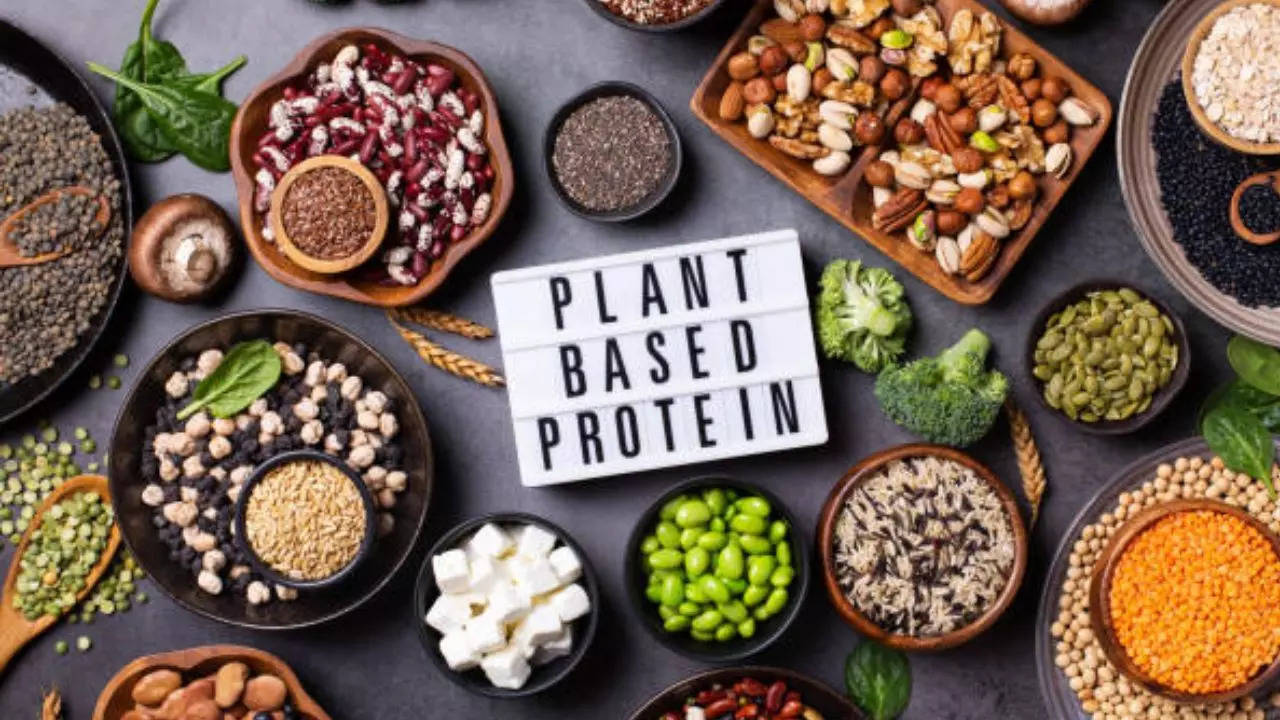-
news
-
Health
Say goodbye to meat! Study shows switching to vegetable protein could boost your heart health
A 30-year Harvard study found that switching to plant-based proteins significantly reduces the risk of heart disease. A diet with a 1:2 plant-to-animal protein ratio may reduce heart disease by 19 percent and coronary heart disease by 27 percent.

Say goodbye to meat! Studies show that switching to vegetable proteins can improve your heart health (Image credit: iStock)
switching from meat Plant Based Protein According to a groundbreaking 30-year study, it can greatly benefit your heart. The research showed that individuals who consumed the most plant-based protein compared to animal protein had a 19 percent reduced risk of cardiovascular disease (CVD) and coronary heart disease (CHD) up to 27 percent.
Plant Protein: A Healthy Change
“Most of us need to start shifting our diets toward plant-based proteins,” said Dr. Frank Hu, professor of nutrition and epidemiology at Harvard University and senior author of the study. He suggests reducing consumption of red and processed meats while adding more legumes, nuts and other plant proteins to the diet. Dr Hu emphasized that this dietary change not only enhances human health but also benefits environmental sustainability.
finding the ideal balance
The study explored the optimal balance between plant and animal protein consumption. While adopting a completely plant-based diet showed the most significant reductions in CHD risk, the benefits for CVD remained constant at the plant-to-animal protein ratio of 1:2.
“The average American consumes protein at a 1:3 ratio from plants to animals,” said lead author Andrea Glenn, now an assistant professor of nutrition at New York University. “Our findings suggest that at least a change to the 1:2 ratio is more effective for CVD prevention. For CHD, a plant to plant ratio of 1:1.3 or higher is ideal.
Main points of study
The study analyzed data from 203,000 men and women participating in the Nurses’ Health Study I and II and the Health Professionals Follow-up Study. The participants were surveyed about their diet every four years. Over a 30-year period, researchers documented more than 16,100 cases of CVD, including more than 10,000 CHD cases and 6,000 strokes.
Findings published in the American Journal of Clinical Nutrition confirmed that higher plant-based protein consumption reduced the risks of both CVD and CHD. Specifically, those with the highest intake of vegetable protein had a 28 percent lower risk of CVD and a 36 percent lower risk of CHD.
Why do plant proteins matter?
Using plant proteins like nuts and beans in place of meat helps reduce fat in the blood, control blood pressure and reduce inflammation. Additionally, plant-based foods are rich in fiber, antioxidants, vitamins, minerals, and healthy fats, which collectively help reduce heart disease risk factors.
The evidence is clear: Adopting plant-based proteins can be a powerful step toward a healthy heart and a sustainable future.
Get the latest news live on Times Now with breaking news and top headlines from around the world.


